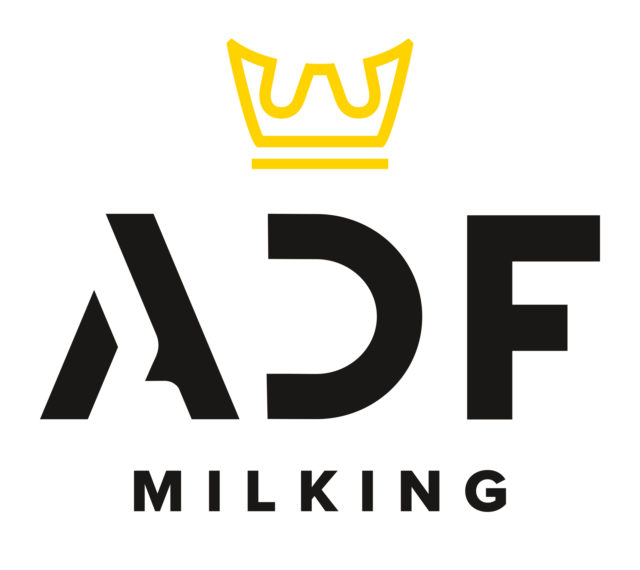When your farm’s successor looks in the mirror, who do they see? A boy or a man’s man? Daddy’s little girl or a farmer who is kicking butt and taking names?
Self-esteem is how you value or perceive yourself. You can also call it self-respect. How do you feel and treat yourself every day? Are you confident? Do you believe you are good at certain things? Do you think you are worthy of being loved and respected?
Within a family business, self-esteem becomes 10 times more complicated because it is not just you; it is the baggage of your family dynamics that comes into play. You might have personal goals, but do they jive with your parents’ personal goals or are they at odds with one another? Do you have the same goals, yet misperception causes complications to be exacerbated? You might get along great as a family for a decade, but nearly overnight the complications of everyone’s emotional needs cause the organization to quickly unravel in ways you would never predict.
After realizing the importance of having self-esteem, I put in many hours of study and research into this potential pitfall, and over 75-plus books later, I am realizing that I am just scratching the surface. However, it is incredible the results you can get out of a son or daughter taking over a farm within a matter of a few weeks when they think of themselves in a positive light.
But where do you start?
The family farm isn’t always the best environment for building a young farmer’s self-esteem. In fact, it can be downright toxic.
Farmers have a suicide rate higher than war veterans who have returned from Iraq and Afghanistan. Do you think self-esteem has anything to do with this? Negative self-esteem impacts every farmer as they lace on their boots each day. The degree of it is the one thing that impacts farm success in unseen yet destructive ways.
When someone takes over the family farm, feeling good about themselves can really help make the farm successful in the long run. Here's why.
- Confidence helps make good decisions. If you are confident, you trust yourself to make the right choices for the farm. You are not afraid to try new things or adapt when things change.
- Bouncing back from problems. Farming has lots of ups and downs. If you feel confident, you are better at dealing with tough times. You don't let setbacks bring you down. You keep trying and don’t let circumstances define you.
- Being strong in negotiations. Running a farm means dealing with other people – everyone from input suppliers to your mother-in-law. If you believe in yourself, you are better at standing up for what the farm needs in these discussions. You are going to respectfully disagree with partners when new efficiencies can be found and fight for what is right, respectfully.
- Being a good leader. Leading a farm means being someone others can look up to. If you feel confident, you are more likely to inspire and motivate your team, and that makes the farm work better.
Consequences of poor self-esteem
Business partners with poor self-esteem can have many negative impacts on a family-owned business.
- Trouble making decisions. Partners who don't feel good about themselves will often second guess themselves and might have a hard time making decisions for the business, which can slow things down like the rate of improved efficiency on your farm and cause you to miss out on good opportunities.
- Not taking initiative. Farmers with low self-esteem might not take the lead or try new things to help the business grow. They will lack ambition. This can hold your farm back from reaching its fullest potential.
- Avoiding problems. If a partner doesn't feel confident, they might avoid dealing with problems, which can make things worse in the long run.
- Not feeling like a good leader. Low self-esteem can make it tough for you to act like a leader. This can make it hard for others to follow your lead or respect you.
- Spreading negativity. When farmers feel bad about themselves, it can bring everyone else down in the partnership. This negativity can hurt morale and make it harder for everyone to work well together.
- Being too cautious. If someone is afraid of failing, they might not want to take any risks. But sometimes, taking smart risks is important for the farm to grow.
- Struggling with relationships. Farmers with low self-esteem might have a hard time getting along with others or just having a relationship that goes beyond the superficial, which can make it tough to work together effectively and have each other’s backs.
In simple terms, feeling good about yourself can help the family farm succeed by making you better at making decisions, dealing with problems, negotiating and leading. But if you don't feel good about yourself, it can hold the farm back by making you avoid risks, struggle with setbacks, have trouble speaking up and not lead effectively. So feeling confident and positive about yourself is really important for making the family farm thrive.
Six pillars of self-esteem
Nathaniel Branden wrote a book called The Six Pillars of Self-Esteem where he broke down the elements of self-esteem into six categories: having goals and working toward them, taking responsibility for your actions, being aware of yourself, accepting yourself, speaking up for yourself, and being honest and consistent (see sidebar).
Which of the six elements above does your business partner struggle with the most?
When you go to farm meetings, we all focus our discussions on financial structuring or protocols for feeding calves. We would never openly discuss building self-esteem. That would be silly, and your neighboring farmers would think it was weird to discuss. Yet, this is the stuff that truly makes or breaks a farm’s long-term success.
Many successful farmers might be geniuses in building efficient businesses and making strategic plays but are absolutely dumbfounded in how to build their son or daughter’s self-esteem. In fact, their attempts to do so have the absolute opposite effect.
I have known this for a long time, but perhaps I didn’t “know it, know it” until I saw a successor with all the talent in the world whose world fell apart from the slightest comment from his father. I had seen it a hundred times before, but the impact of this particular father and son duo really made a lot of things “click” about how a $50 million business’s long-term success can hinge on just how a son looks at himself in the mirror for 10 seconds in the morning.
I could write a book on this (and I just might). However, I think the first step for any family farm is to realize this thing we look at as silly or wishy-washy is actually a very big thing that causes a lot of family businesses to do really dumb things. For everyone within your family to recognize the importance of “emotional intelligence” and how partners see themselves in the mirror is the first step in getting positive changes made.
Nathaniel Branden’s Six Pillars of Self-Esteem
- Having goals and working toward them. Set goals you want to achieve and take steps to make them happen. Having something to aim for gives your life direction and purpose. When I start working with a farm family, this starts with setting audacious goals for what you want to have done by sunset tomorrow night, and eventually works into long-term goals for your life (living with purpose).
- Taking responsibility for your actions. Understand that what you do affects your life. Instead of blaming others for things that happen to you, recognize that your choices matter. Problem-solve how you approach problem-solving itself.
- Being aware of yourself. Pay attention to your thoughts, feelings and what you do. How do you react to problems, and how could you react better in the future?
- Accepting yourself. It is being OK with who you are, even if you are not perfect. Embrace your good qualities and your flaws without being too hard on yourself. Yet, having the grit to gradually turn weaknesses into strengths. On a yellow sticky note in the corner of your bathroom mirror, write down one new thing you are working on to improve each month and ask daily if this change is happening.
- Speaking up for yourself. Don't be afraid to say what you need or believe in, but do it respectfully. It is about being true to yourself without stepping on others. Always be respectful yet authentic. Never wear a mask and fight for your beliefs.
- Being honest and consistent. Do what you say you will do, and be truthful with yourself and others. It is about being trustworthy and living by your values. I carry a jackknife which has the mantra “Be the man you want your boys to become.” This has changed my mindset/actions in everything I say and do.










